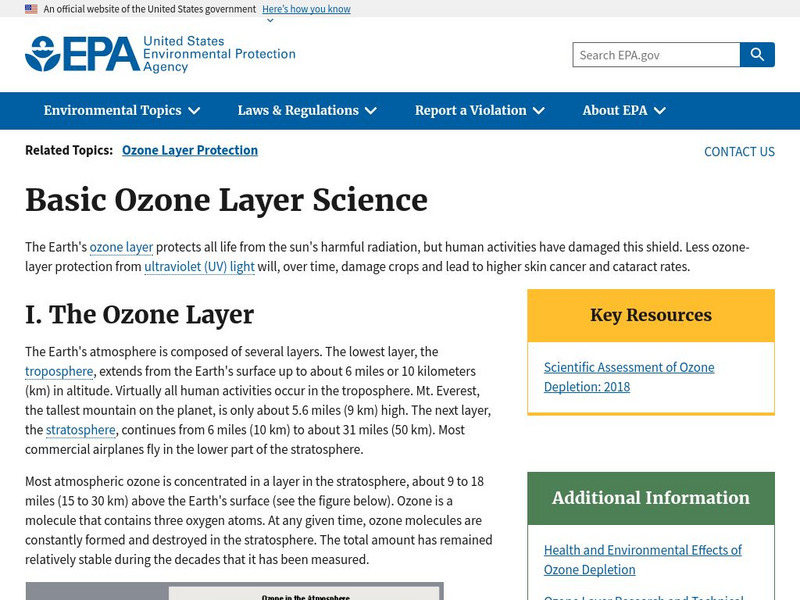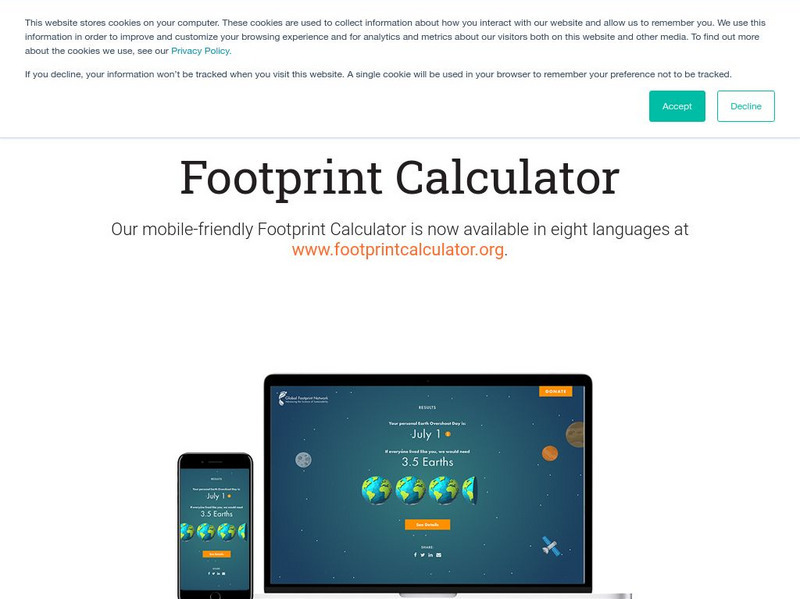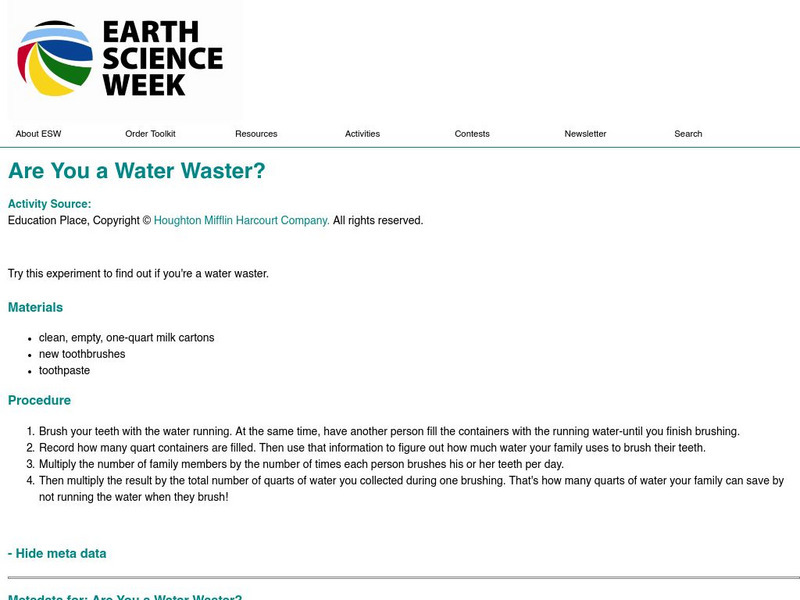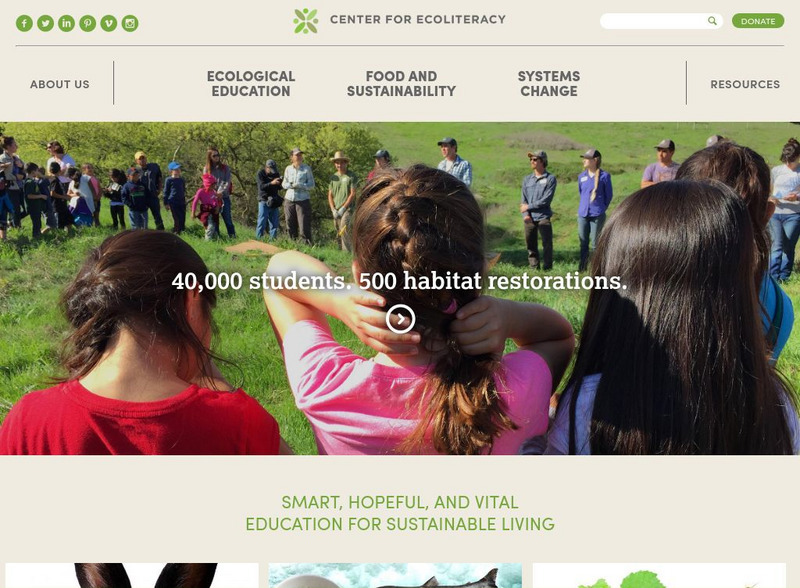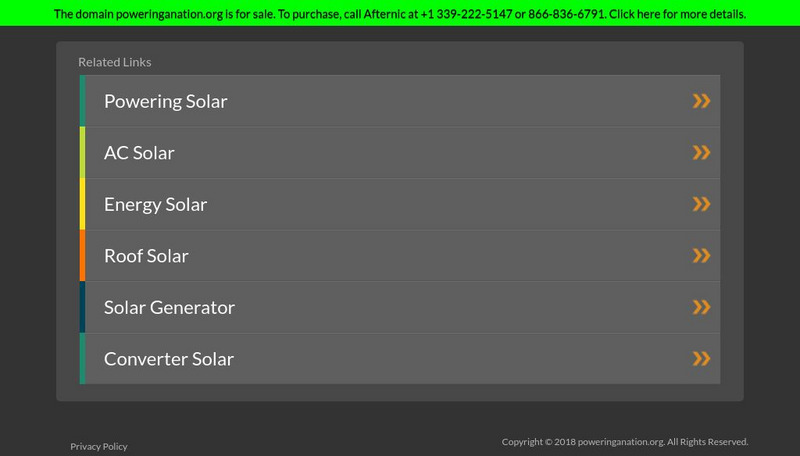Other
Bighorn Outfitters
You can go hunting, fishing and backpacking. The best months are September, October and November to go to hunting camps. You can see elk, deer and mountain lions.
Other
North Carolina Department of Energy and Natural Resources: Grade Your Schoolyard
What is your school doing to protect and conserve water? Use the following questions to find out. When you are done, make some suggestions for how your school could improve. What could you and your class do to help?
Other
Earth Day Network: Conserving Water Through Art [Pdf]
A lesson plan challenging students to develop ways to conserve water in their homes after understanding the impact of water scarcity. A promise will be made by each student and a reminder craft created to help them keep the promises.
Open Curriculum
Open Curriculum: Earth Day Network: Healthy Earth, Sick Earth [Pdf]
Madeline Kaplan's book, Planet Earth Gets Well, introduces a instructional activity focused on climate change. Students will discover ways to keep Earth healthy.
Other
Green Mountain Audubon Society
There are 255 acres of fields, streams, forests and ponds. You can even buy their maple syrup on line, or take a virtual tour!
Other
New Orleans Botanical Garden
The homepage of the New Orleans Botanical Garden provides a history of the garden. You can also take a virtual tour.
Other
Story of Stuff Project: The Story of Stuff
Activist Annie Leonard narrates this anticonsumerism video that traces the links between what we consume as finished goods and what is consumed in the production of those goods. The hidden costs of consumption-costs attributable to...
Other
Earth Day Canada: Eco Kids: Battery Facts
Battery Facts provides helpful information about the benefits of batteries, how they work, and the concerns over the footprint they leave on the environment when they are not properly disposed of.
US Environmental Protection Agency
Epa: Basic Ozone Layer Science
This site from the U.S. Environmental Protection Agency provides general information about ozone damage.
Other
New England Aquarium: Climate Change and the Oceans
A series of videos accompanied by student activity sheets explore the impact of climate change on the ocean and the animals that live in and around it: sea turtles, jellies, whales, shore birds, lobsters, and coral.
Other
Nature Discovery Center
There are teacher workshops and kid's programs at this center with the purpose of outdoor education. You can visit kid's pages and adult programs.
Other
North Carolina Nature Center: Homepage
There is a great interactive map at this site from the North Carolina Nature Center. You can click on the otter habitat, Trillium Glen Nature Trail, petting zoo, and more.
Other
World Land Trust: Personal Carbon Balanced Calculators
You will find a series of calculators here for exploring what your carbon footprint on the Earth is, based on your use of air travel, your regular means of transportation, your household habits, and fixed carbon dioxide emissions for the...
PBS
The Greens: A Site for Kids About Looking After the Planet
Especially designed website companion to the PBS ecology series The Greens helps kids explore ideas about making smart environmental choices. Find animated videos, activity suggestions, projects to do, and solid advice for putting your...
Other
Epa: Environmental Education & Training Partnership
Project to supply environmental education, training, and services was started in part by the US Environmental Protection Agency.
Other
Global Footprint Network: Footprint Calculator
With this resource, students answer questions about their lifestyles and, in return, receive an ecological footprint report. It states how many planets would be required to support the human race if everyone had the same footprint.
Other
Recycling Council of Ontario: Waste Free Lunch Challenge
This site provides resources for educators to manage a litterless lunch program at their schools in order to promote environmental education objectives. Teachers register their classes and receive certificates at the end of the program.
American Geosciences Institute
American Geosciences Institute: Earth Science Week: Are You a Water Waster?
In this activity, students monitor how much water is used if the water is left running while they brush their teeth. They use that information to calculate how much the whole family would use. They learn how much water can be conserved...
Other
Nearby Nature
This organization provides nature walks, volunteer opportunities, environment restoration projects, and other educational opportunities that encourage nature appreciation.
Other
Center for Ecoliteracy
Learn of an organization that is providing support to educators to teach ecologically sustainable skills to children. Includes details on grants, resources, and projects.
Other
University of North Carolina at Chapel Hill: Powering a Nation
Journalism school experiment with finding new ways to tell stories about the critical environmental issues surrounding America's energy future.
ArtsNow
Arts Now Learning: This Land Is My Land, This Land Is Your Land [Pdf]
In this lesson, 3rd graders take on the roles of characters in a drama centered on preserving the environment. Students will play different living things that inhabit a forest. They will improvise dialogue and analyze environmental...
Curated OER
Cbc Kids: Can You Tell Difference Between the Work of Mother Nature and Humans?
An interactive quiz where students are presented with a series of ten photos and they must decide if each is natural or made by humans. They receive a score at the end and information about each of the photos.
Environmental Education for Kids
Eek!: Environmental Education: Art and Crafts
A collection of arts and crafts activities to support environmental education or celebrate Earth Day.




![Earth Day Network: Conserving Water Through Art [Pdf] Lesson Plan Earth Day Network: Conserving Water Through Art [Pdf] Lesson Plan](https://d15y2dacu3jp90.cloudfront.net/images/attachment_defaults/resource/large/FPO-knovation.png)


